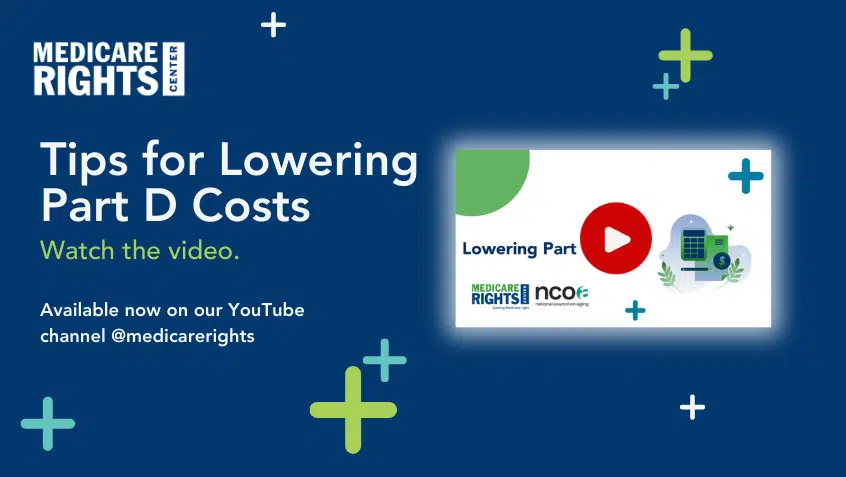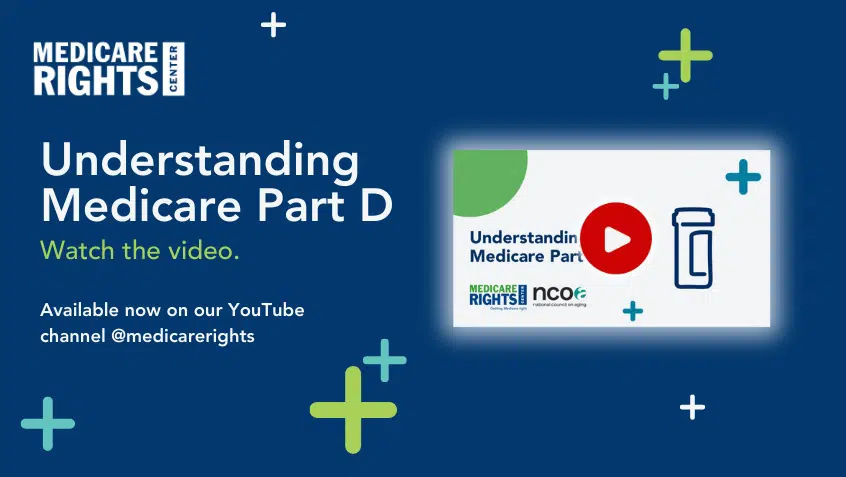
Medicare Drug Price Negotiations: Selected Drugs for 2028
Last week, the Centers for Medicare and Medicaid Services (CMS) announced the selection of the group of 15 drugs for
Join Us Live for a Discussion on Medicare, Democracy, and the Future of Health Care
The Inflation Reduction Act (IRA) takes important steps to reduce drug prices and lower costs for people with Medicare and the program, such as capping beneficiary out-of-pocket spending; requiring Medicare to negotiate drug prices; and expanding eligibility for the full Part D low-income subsidy (LIS). We support an implementation process that centers the beneficiary experience and look forward to building upon these landmark policies.

Last week, the Centers for Medicare and Medicaid Services (CMS) announced the selection of the group of 15 drugs for
A comprehensive commentary by the Medicare Rights Center on the Centers for Medicare & Medicaid Services (CMS) proposed rule for

Extra Help The main federal program that provides Part D cost assistance is Extra Help, and many people enrolled in other cost-saving programs receive Extra Help coverage

This month, the Medicare Rights Center, with the support of the National Council on Aging, is releasing a new series of videos explaining Medicare benefits and

This week, the nonpartisan Congressional Budget Office (CBO) said a provision in the reconciliation bill that widens exemptions from Medicare’s


The Inflation Reduction Act (IRA) of 2022 created a new ability for Medicare to negotiate prices for the most expensive

Prescription drug coverage in Medicare, provided via private health insurance plans under Part D, covers more than 53 million Americans.

As we have highlighted in past articles, many people with Medicare—and many callers to our national consumer helpline—struggle to afford

On Tuesday, President Trump issued an executive order on prescription drug pricing that supports key drug industry efforts to weaken

Last week, the Centers for Medicare and Medicaid Services (CMS) announced the selection of the group of 15 drugs for
A comprehensive commentary by the Medicare Rights Center on the Centers for Medicare & Medicaid Services (CMS) proposed rule for

Extra Help The main federal program that provides Part D cost assistance is Extra Help, and many people enrolled in other cost-saving programs receive Extra Help coverage

This month, the Medicare Rights Center, with the support of the National Council on Aging, is releasing a new series of videos explaining Medicare benefits and

This week, the nonpartisan Congressional Budget Office (CBO) said a provision in the reconciliation bill that widens exemptions from Medicare’s


The Inflation Reduction Act (IRA) of 2022 created a new ability for Medicare to negotiate prices for the most expensive

Prescription drug coverage in Medicare, provided via private health insurance plans under Part D, covers more than 53 million Americans.

As we have highlighted in past articles, many people with Medicare—and many callers to our national consumer helpline—struggle to afford

On Tuesday, President Trump issued an executive order on prescription drug pricing that supports key drug industry efforts to weaken